|
The wild pigs are back this dry winter day, snuffling about in the dead leaves on my neighbor’s front lawn. I pull up beside them and lean on the horn, trying to scare them off to their homeland hills. Despite the months they spent last summer overturning my own yard, I sincerely want to save their smelly skins. If the manager of the golf course gets wind (so to speak) of their return, the pigs will be trapped and shot. My home is at the wild rim of theirs, positioned between two extremes: Almaden Quicksilver County Park and the Almaden Country Club. On one side a natural wilderness open to all; on the other, a manicured golf course open to members. The pigs have no interest in membership, nor in trespassing over (and under) the precious turf – not in normal weather, anyway. But it’s been an extremely dry year, and the pond across the street, at the edge of the course, has lured them out of bounds. The pond is really a club-owned reservoir for water traps, but over the decades its has become a home for herons, hawks, and ducks, and a wayside inn for cougars, coyotes, and deer -- not pigs, however. Last summer the country club, looking for a valve, drained most of the water away. The pond fell to one-fourth its original depth, leaving concentric shorelines of muck and stench. It’s not hard to imagine what happened next. One day in July, when a rare wind blew this inviting scent their way, a large herd of boar in the hills stopped their grunting and rooting. They wiggled their dusty snouts in the air, then glanced at each other and grinned with porcine joy. Abandoning the hard-packed ground, the half-dozen adults summoned their two dozen piglets, then jostled and tumbled their way toward the feast below. They arrived at my yard first, and, quite pleased with the array of heavy appetizers offered there, lingered for weeks, enjoying the ease with which they could flip over the flagstones I reset each day, and root under the nursery perennials I kept replanting. I’m sure they thought I was simply replenishing the buffet. When I chased them off, they retreated a few yards into the park, where they basked in the dust until I went back in the house. Just give her a minute, I could hear them muttering to each other. After a while they wouldn’t retreat at all. Once I leaned over the deck railing eighteen inches over their heads, threw pebbles, clapped, and yelled Scram! Two 300-pound sows looked up, gave a snort, and flicked their bristly hides. Obviously terrified by my harsh language and dangerous projectiles, they lay down and wallowed on their backs, sticking their muddy cloven hooves in the air, right beneath my highly offended nose. The piglets cavorted around their moms in glee. I gave up. They clearly sensed I didn’t have it in me to do any more violence than that. Besides, I knew they’d leave, as they had in other years, when the rains came and softened their home grounds. But the rains didn’t come. When the pigs had extracted and gobbled every earthworm and grub, they followed their snouts past my house and across the street, to the increasingly odiferous pond. There they rolled and feasted in rich yards of exposed shoreline mud, generously seasoned by years of layers of waterfowl manure. Between gorgings they lolled about in the sun, bellies bloated, on slopes. One day one of them climbed high enough to spot a glimpse of the golf course through the oaks, just across the street on the far side of the pond. Scarcely believing their unending good fortune, they lumbered to their feet, waddled happily onto the unfenced course, and began to enjoy the dessert bar beneath Hole Three. This course on the course lasted several weeks while the country club tried mending and chasing, as I had, and with equal effectiveness. Occasionally the herd would trundle back to the pond for spa treatments in the mud, crossing the street properly and legally at the stop sign. Traffic would back up while three dozen sows and piglets trotted past in single file, all variously adorned in solids, stripes, and spots, wearing dirty snouts and expressions of satiated bliss. For the pigs it was a summer of decadence; for homeowners and golf course managers, an oddly charming but very expensive mess. Homeowners responded, for the most part, just as I had -- enjoying and allowing nature to happen while whining about the destruction and cost. But the country club, claiming they had tried everything else possible, obtained an “emergency permit” to kill the very guests they had invited by draining the reservoir pond. The pigs had no Mulligans left. One morning while I was out of town, my neighbors heard ten gunshots at the pond -- a family caught in a trap and killed one by one. After that, the rest of the pigs vanished into the hills. So when I see the pigs again three months later, only one street away from the course, I fear for their hides. The temporary hunting permit has expired, but I know it can all too easily be renewed. I honk and yell – as usual, to no avail. I have to laugh at myself for repeating the same ineffective measures, and at them, too, just for being so cocky and comical-looking. But then I look closer, and my grin fades. The mien of these feral pigs is much different now. The sass of their former frolicking is gone. They’re sluggishly lifting their heavy heads to gaze wearily at me with deeply sunken eyes, three tired old sows surrounded by a few piglets frantically grabbing at teats. These piglets are new, the litter smaller because of the lack of food. One of them might be the piglet whose frantic squeals awakened me at two o'clock this morning; Leaping up and looking out the window, I saw two coyotes batting it back and forth across the moonlit lawn. I scared them off, but I felt bad for the hungry canines, too -- all wild things are undernourished now. It’s clear this excursion into suburbia is not the optional feast of last summer and fall. The continuing drought has made the pigs desperate, driving them over their boundaries again to survive. One sow takes a half-step toward me, plants her hooves squarely, and looks me straight in the eye through my car window. She stands for a moment, not chewing, not flicking her tail, not moving at all -- just staring. Her eyes are dull. We don’t have a choice, she seems to say. Just look at all these kids! And then, wheeling ponderously away, she returns to half-heartedly snuffling through layers of leaves. A piglet scrambles after her, tugging at a teat that has probably gone dry.
I’m pleased to add that it has finally rained since I wrote this post a few days ago, and the wild pigs have disappeared into the hills again -- safe, for the moment.
2 Comments
A faint melody plays in the woods today, the nearly forgotten sound of falling rain. My dog and I wade down a glistening stream of curled, sienna-toned leaves. The earth smells musty and moist. The camouflage patterns on the sycamores shine, reminding me of paint-by-number kits. Suddenly Darcy stops. She won’t move on, no matter how hard I tug her leash or plead. Her nose points up; I follow her bright, fixed gaze. Above me, bare oak branches crackle a sky the color of new concrete. At the tops of the trees twelve vultures hulk, spreading their wings to dry like cormorants. I feel as if I have just stepped into a Poe story – or a Hitchcock movie. I have never seen such a large group of the carrion birds (called a venue, I later learn), and never in trees. Somehow it seems far less eerie to see them looming over a carcass on the ground, where at least their presence is common and their purpose clear. I’m not sure why Darcy is so disconcerted, though. They aren’t any bigger than the wild turkeys I feed, and those birds she ignores with notable disdain. But she is a very wise dog. Perhaps she knows that vultures come with death. The rainfall intensifies. I pull Darcy under the veils of the valley oaks, their dangling twigs hung with fat pairs of oak-apple galls. The beige and black pods, each made by the sting of a wasp and containing one larva, depend from every limb like ornaments. Darcy sniffs tentatively at the base of one of these oaks, then stands on her back feet to peer in its leaf-laden crotch. There I see steam rising up from fresh scat. I’m guessing it’s that of a bobcat, whose prey may have drawn these Stygian scavengers. One swoops away to swirl and soar in a circle above my head. I marvel at its unexpected grace. On the ground, vultures’ flat, weak feet makes them lumber and hop, as if deformed. Their gross behaviors amplify the effect: besides plunging their featherless faces inside dead flesh, they hiss and grunt. They pee on themselves to cool off and kill germs, and they vomit a vile solution in self-defense. Vultures serve an invaluable role, but they are not by any stretch known as beautiful birds. In flight, however, they glide with ethereal grace. Then with expanded wings he steers his flight Aloft, incumbent on the dusky air... A sound like a shot rings out and the others lurch up, startled from their hunkering poses into the air. A dozen six-foot wingspans sweep the sky. “HEY!” I shout toward the nearby streets, thinking someone there has fired at the birds. For some, ugliness alone is reason enough to take aim. I can’t count on such people to stop and think that perhaps, at half-past eight on a rainy morning, a human could be strolling through the woods. I run toward the houses beyond the trees, a dozen yards away. All is still. It was not a shot, after all: a branch lies on the street, broken by the weight of a landing or launching bird. I’m relieved – and not just for myself. I’m surprised to realize how ready I was to take up for the hideous things. I’ve yanked Darcy along with me in haste, and now she plops down and huffs indignantly. Water runs over her head and in her eyes; she’s miserable inside and out. “All right, you weenie,” I say. Anyway it’s colder than I thought it would be, and I've already learned something new -- I’m ready to head home, too.
Many thanks to John Milton for all of Paradise Lost and to Steve Hall of Adirondack Wildlife for his fascinating, informative page about Turkey Vultures. Note: The photo of Darcy was taken on another, drier, sunnier winter day. |
Welcome to
|
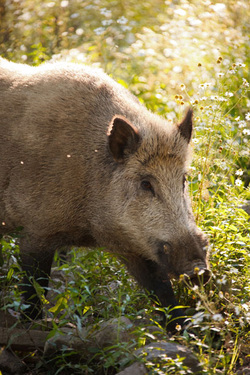
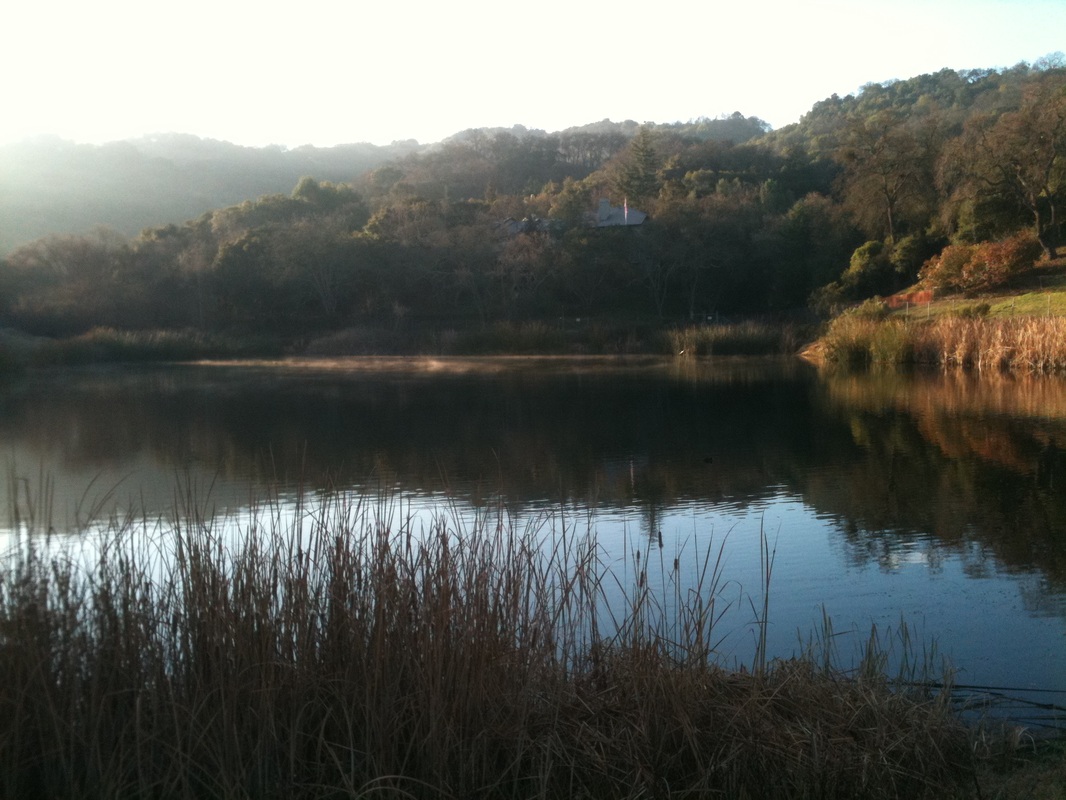
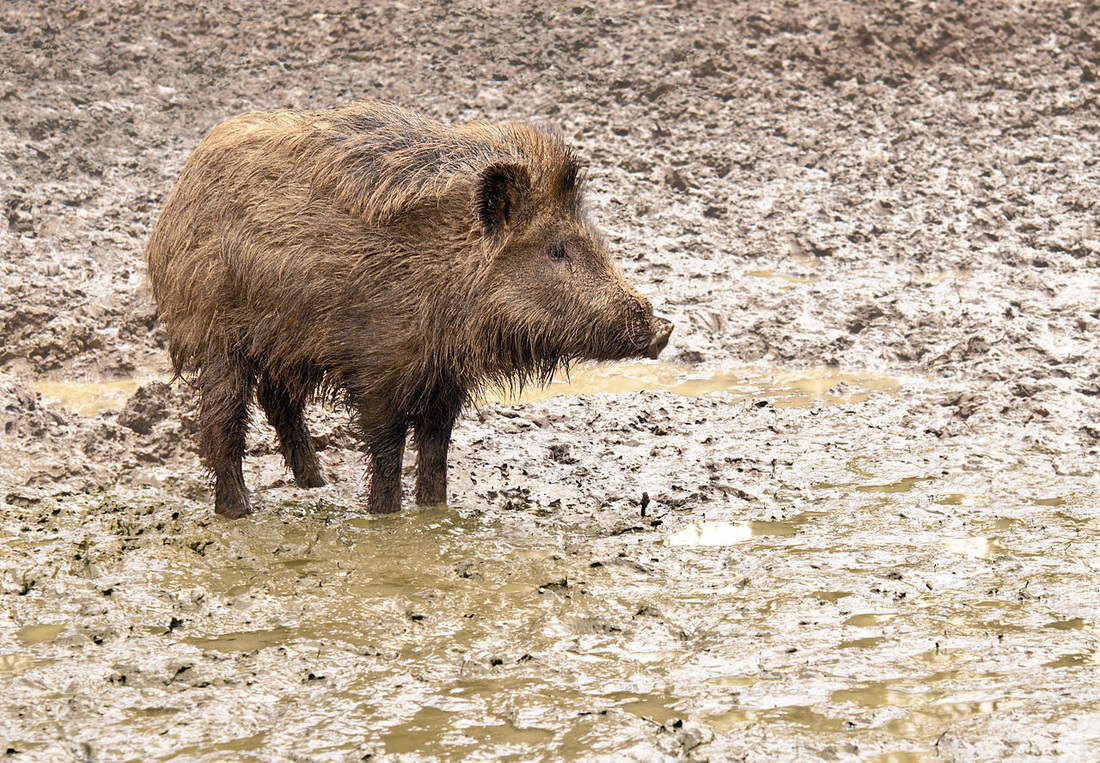
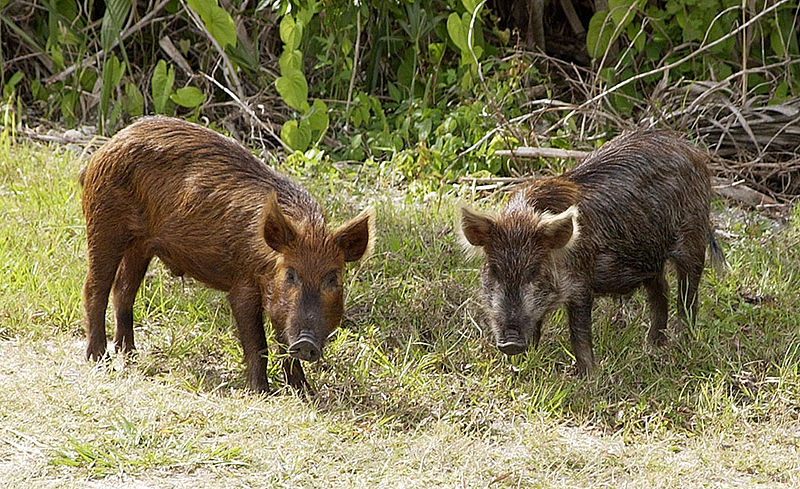
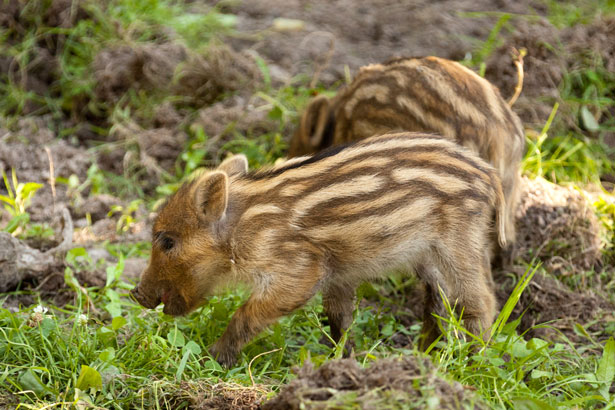
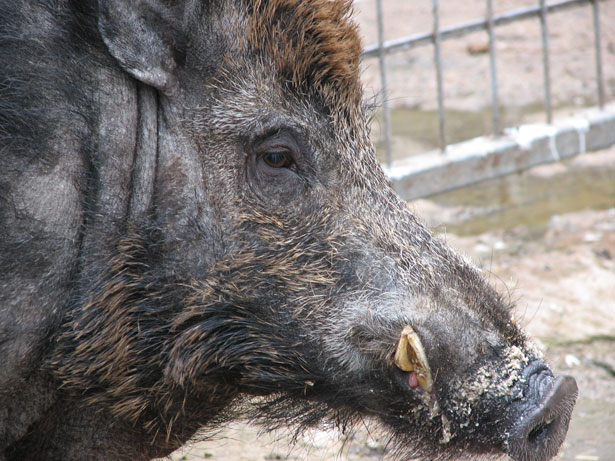
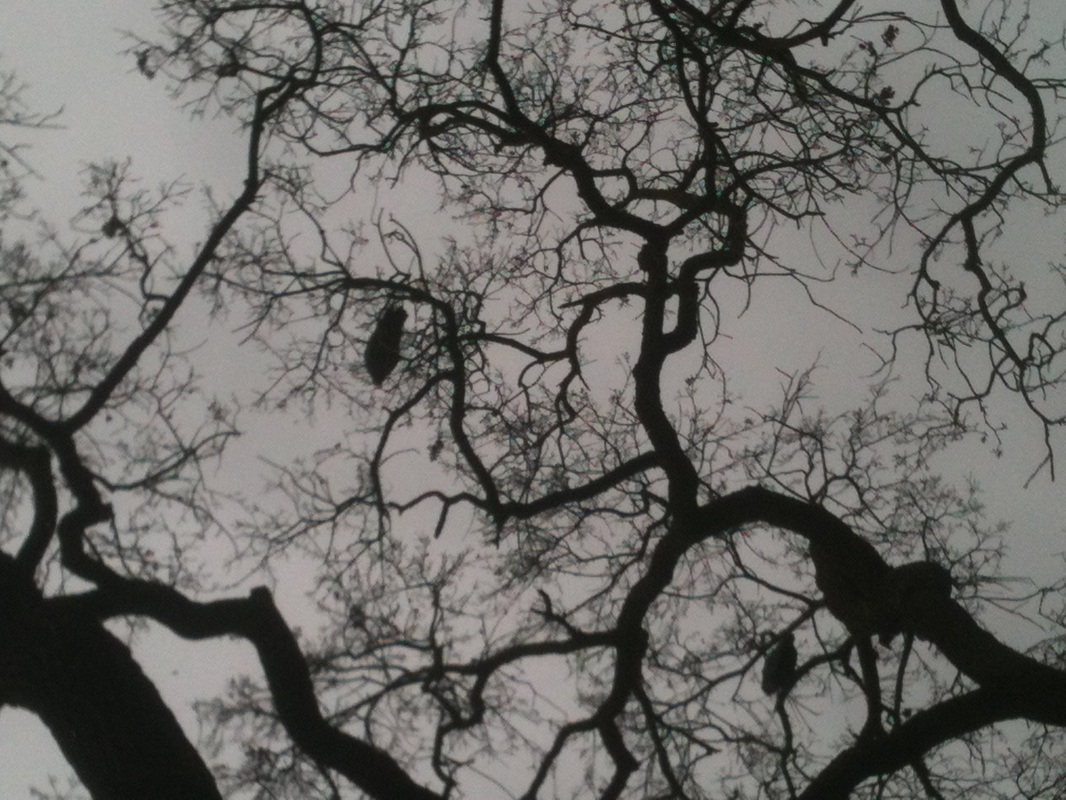
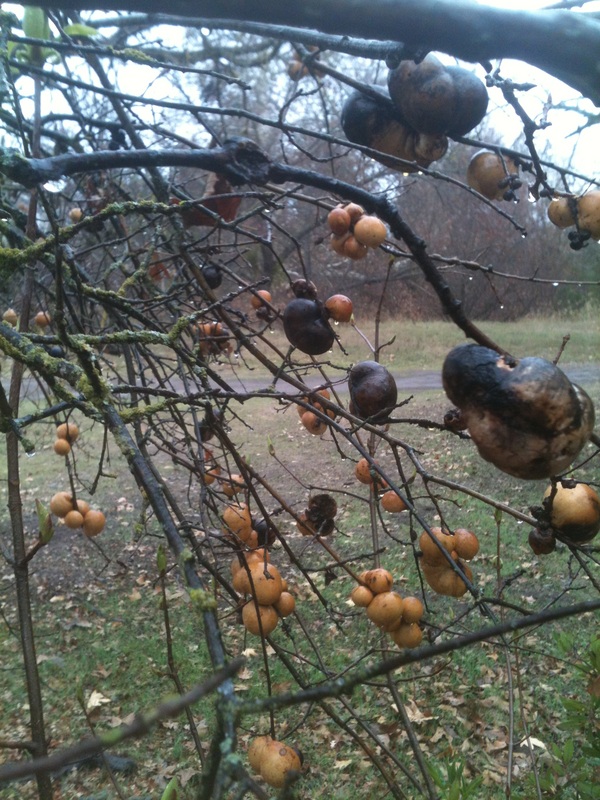
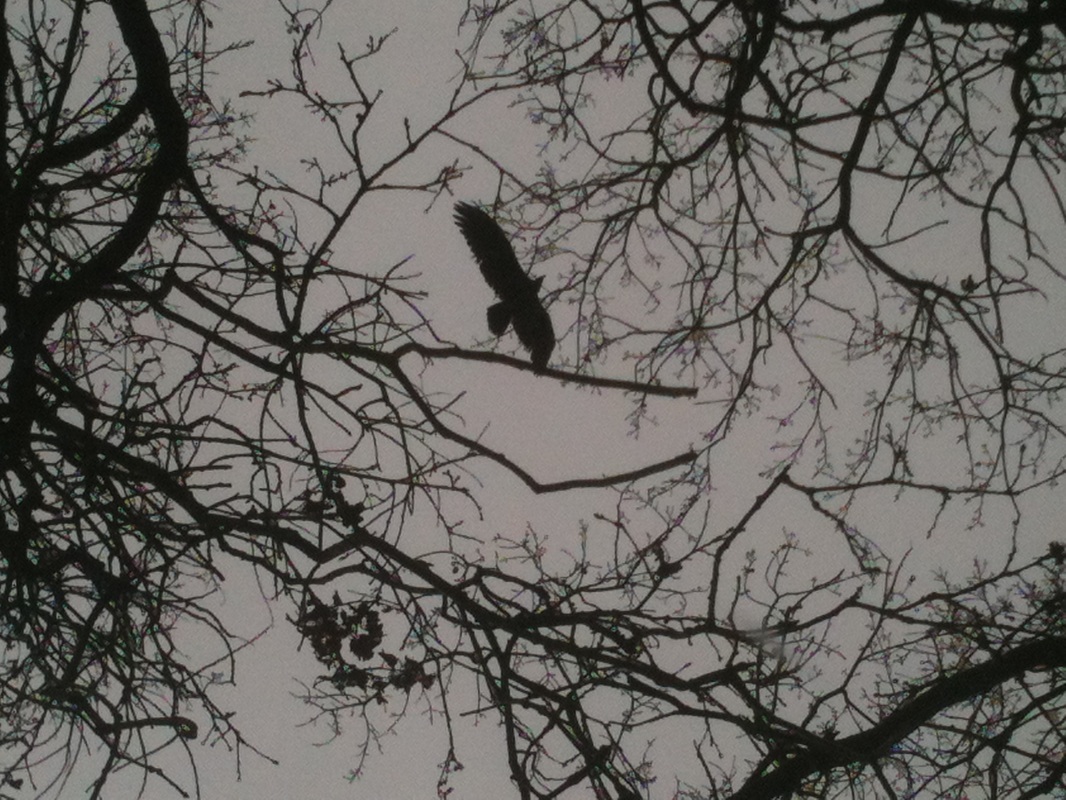
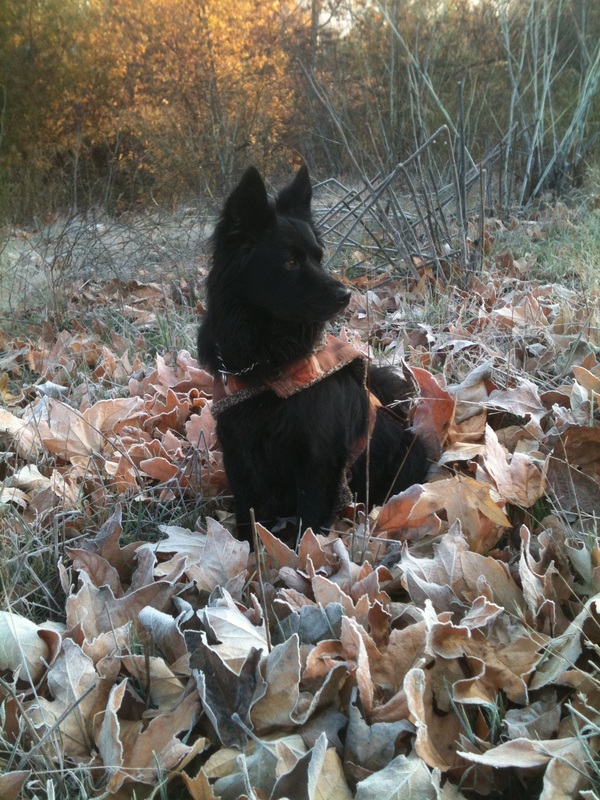
 RSS Feed
RSS Feed